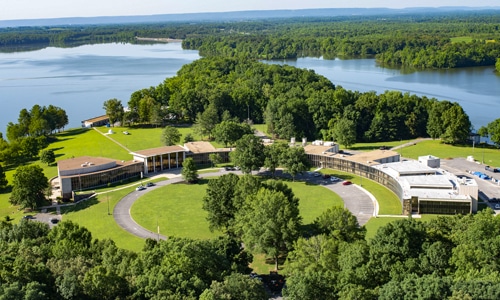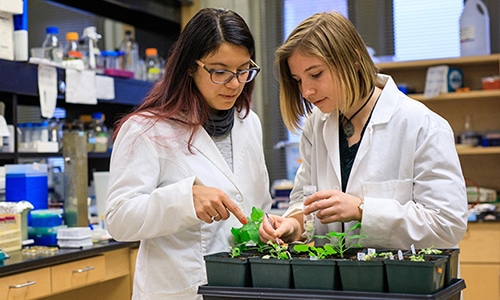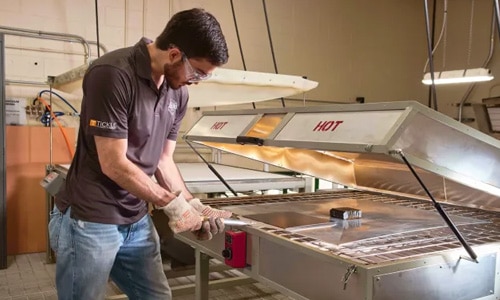The UT research enterprise is built upon a foundation of collaboration by bringing together faculty and students from different intellectual pursuits to collaborate on inherently complex and interdisciplinary challenges. UT researchers, staff, and students work across disciplines to extend the boundaries of knowledge and tackle problems facing societies at local, national, and global scales.
The continuing excellence of UT research efforts is tied to the ability to sustain a rich variety of highly successful research institutes. Discover the ways UT scholars are advancing the fields of engineering, life sciences, physics, and mathematics.
Research Institutes

University of Tennessee Space Institute (UTSI)
UTSI is internationally recognized for contributions in the fields of engineering, physics, mathematics, and aviation systems.

University of Tennessee Institute of Agriculture (UTIA)
UTIA provides Real. Life. Solutions. to some of society’s most pressing issues, serving Tennessee citizens and beyond.

University of Tennessee-Oak Ridge Innovation Institute (UT-ORII)
The institute addresses top-tier industry and workforce needs emerging from the introduction of automation and artificial intelligence.

National Institute for STEM Evaluation and Research (NISER)
NISER provides quality evaluation services to funded projects in the Science, Technology, Engineering and Mathematics (STEM) research and education sectors.

Institute for Advanced Materials and Manufacturing (IAMM)
IAMM is a global leader in materials and manufacturing research and innovation.
Research Centers
Campus Level Research Centers
Joint Institutes with Oak Ridge National Laboratory
- Joint Institute for Nuclear Physics and Applications
- Shull Wollan Center, A Joint Institute for Neutron Sciences
College-Based Centers and Institutes
The respective dean of each college provides direct oversight of the following research centers.
- Center for Children’s & Young Adult Literature
- Center for Educational Leadership
- Center for Enhancing Education in Mathematics and Sciences
- Center for Literacy, Education, and Employment
- Center for Sport, Peace, and Society
- Center on Deafness
- College Access and Persistence Services
- Culinary Institute
- Early Learning Center for Research and Practice
- Korn Learning, Assessment, and Social Skills Center
- Postsecondary Education Research Center
- Rocky Top Institute
- Tennessee Reading Research Center
- Center for Materials Processing
- Center for Transportation Research
- Center for Ultra-Wide-Area Resilient Electric Energy Transmission Networks
- Innovative Computing Laboratory
- Institute for a Secure and Sustainable Environment
- Reliability and Maintainability Center
- Scintillation Materials Research Center